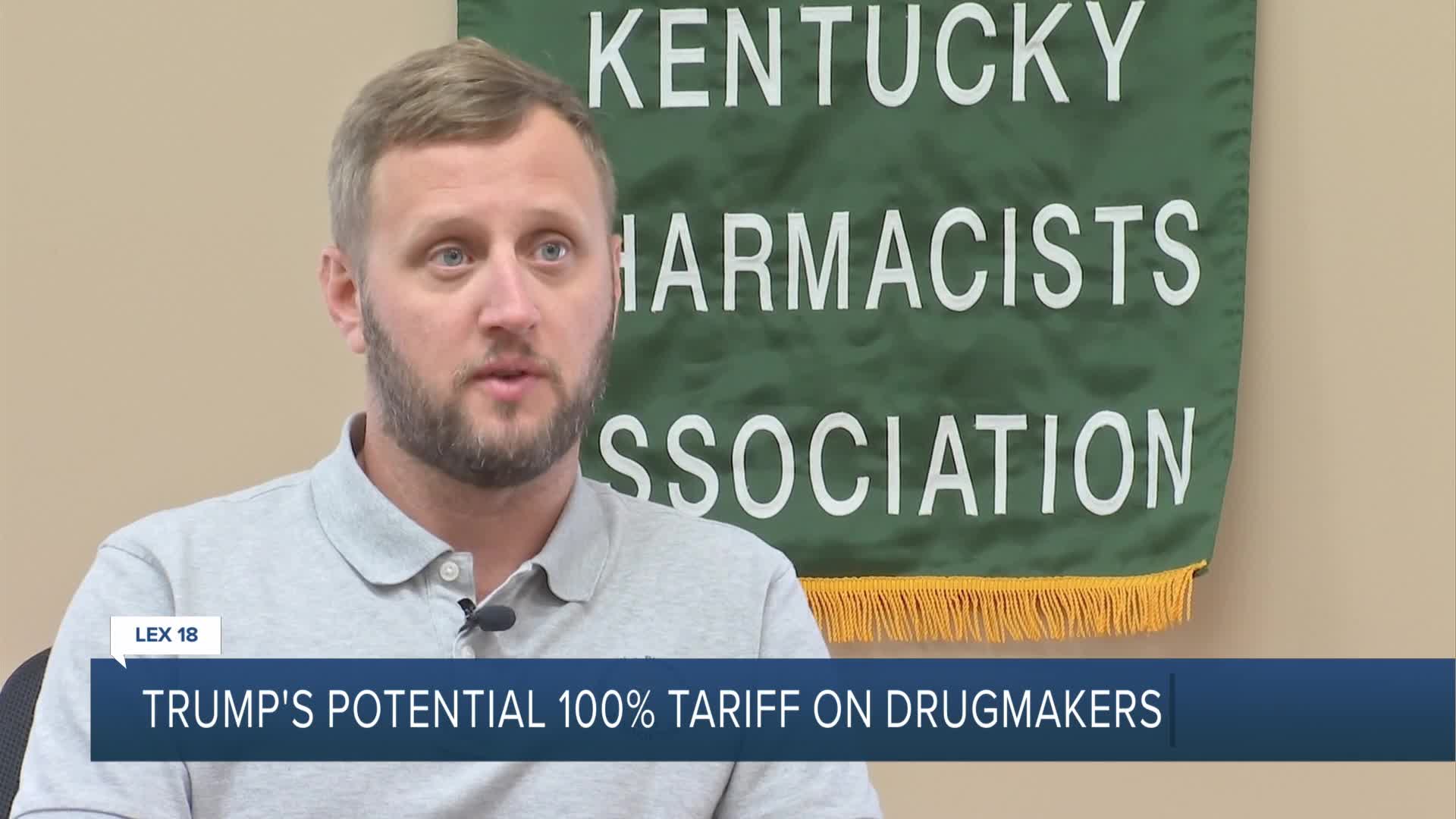FRANKFORT, Ky. (LEX 18) — President Trump's proposed 100% tariff on imported drugs has Kentucky pharmacists worried about potential disruptions to patient care and pharmacy operations.
The tariff, originally set to take effect October 1, would apply to brand-name or patented pharmaceutical products unless drug makers build manufacturing plants in the United States. The implementation is currently on hold as the new tax is still being prepared.
Dr. Ben Mudd, executive director of the Kentucky Pharmacists Association, believes the announcement was strategic.
"It was a tactic to try to bring the drug manufacturers to the negotiating table," Mudd said.
The approach appears to be working. The White House brokered a deal with Pfizer to lower prescription drug prices in the United States through a direct-to-consumer platform where patients can buy directly from the manufacturer. By offering discounted medications directly to American consumers, Pfizer will avoid potential U.S. tariffs on overseas drugs for three years.
Friday, a deal similar to the one with Pfizer, was reached with AstraZeneca.
However, Mudd warns the tariff could create immediate challenges for pharmacies.
"The effect on pharmacies would be immediate but then how much pharmacies get reimbursed could be delayed, so it could cause some hiccups there," Mudd said.
He's particularly concerned about situations where pharmacies are unable to purchase drugs and sell them at a price higher than what they bought them for.
This could lead to a fragmented system where patients might need to visit multiple locations for their medications.
"A world where patients are potentially getting five different prescriptions from five different pharmacies," Mudd said.
The Kentucky Pharmacists Association, which represents 1,200 members including about 700 pharmacists, is closely monitoring the situation.
Mudd raises an important question about patient safety: who will provide the needed service of making sure all medications are appropriate for a patient when prescriptions come from multiple sources?





